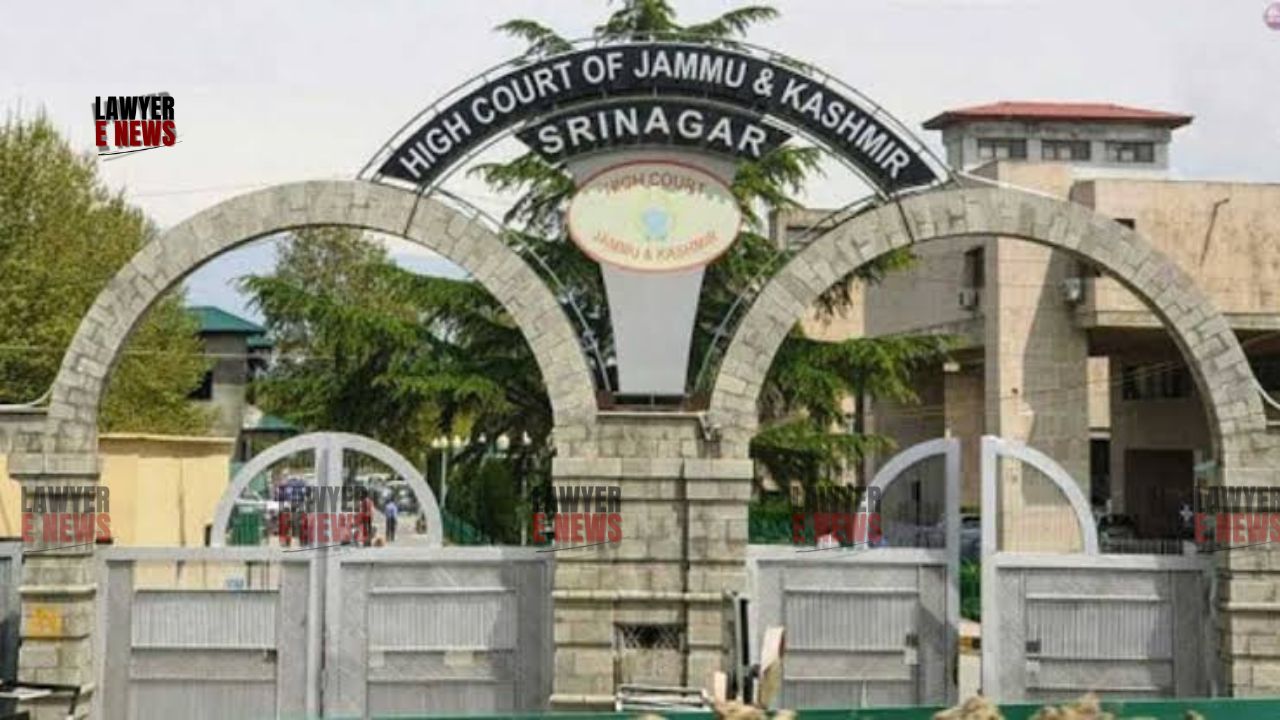-
by Admin
15 February 2026 5:35 AM



The High Court of Jammu & Kashmir and Ladakh at Jammu has quashed FIR No. 42/2015 registered against Manjeet Singh Rissam in a contentious property dispute, reinforcing the legal principle that civil disputes should not be converted into criminal cases. The judgment, delivered by Justice Rajnesh Oswal, highlighted the predominance of civil elements in the case and deemed the criminal proceedings an abuse of legal process.
Manjeet Singh Rissam, aged 60, was accused under various sections of the Ranbir Penal Code (RPC), including Sections 420 (cheating), 406 (criminal breach of trust), and 120-B (criminal conspiracy). The FIR, registered at the instance of Kanwar Bir Kour, alleged that Rissam and his deceased father sold her a property in Jammu, which they later illegally occupied despite the expiry of a license agreement. Rissam contended that the sale deeds were merely to secure a loan, and the dispute was essentially civil, already being addressed in ongoing civil suits.
Dispute Nature and Civil Proceedings: Justice Oswal noted that the primary issue between the parties was civil in nature, involving the ownership and occupation of property sold under two sale deeds. The court emphasized, “The dispute, primarily civil in nature, is being addressed in civil courts. Criminal proceedings cannot be used to settle civil matters.”
Cheating and Criminal Breach of Trust: The court examined the ingredients necessary to constitute the offenses of cheating and criminal breach of trust. “From the allegations in the complaint, it cannot be said that there was any act of deception on the part of the accused so as to induce the respondent to part away with the possession of the property,” the judgment stated. Furthermore, the court observed that no fraudulent or dishonest inducement was evident, thereby negating the charges of cheating.
Guidance from Supreme Court Precedents: Citing several Supreme Court rulings, including R. K. Vijayasarathy v. Sudha Seetharam and Sarabjit Kaur v. State of Punjab, the court reiterated that criminal prosecution should not be used to resolve civil disputes. The judgment highlighted the Supreme Court’s caution against converting purely civil disputes into criminal cases, noting, “The Hon’ble Supreme Court of India has deprecated the practice of using criminal proceedings to settle civil disputes time and again.”
Justice Oswal remarked, “The FIR impugned is nothing but an abuse of process of law. The respondent cannot continue to use the criminal proceedings for settling the civil dispute once she has already availed the remedy of the civil suit for the vacation of the house.”
The High Court’s decision to quash the FIR underlines the judiciary’s commitment to maintaining a clear distinction between civil and criminal jurisdictions. This judgment is expected to have a significant impact on how similar cases are approached in the future, reinforcing the principle that criminal law should not be misused to exert pressure in civil disputes. The ruling serves as a reminder of the judiciary’s role in preventing the abuse of legal processes and ensuring that civil matters are resolved through appropriate civil remedies.
Date of Decision: 24th May 2024
Manjeet Singh Rissam alias Mangit Singh vs. State of Jammu and Kashmir
